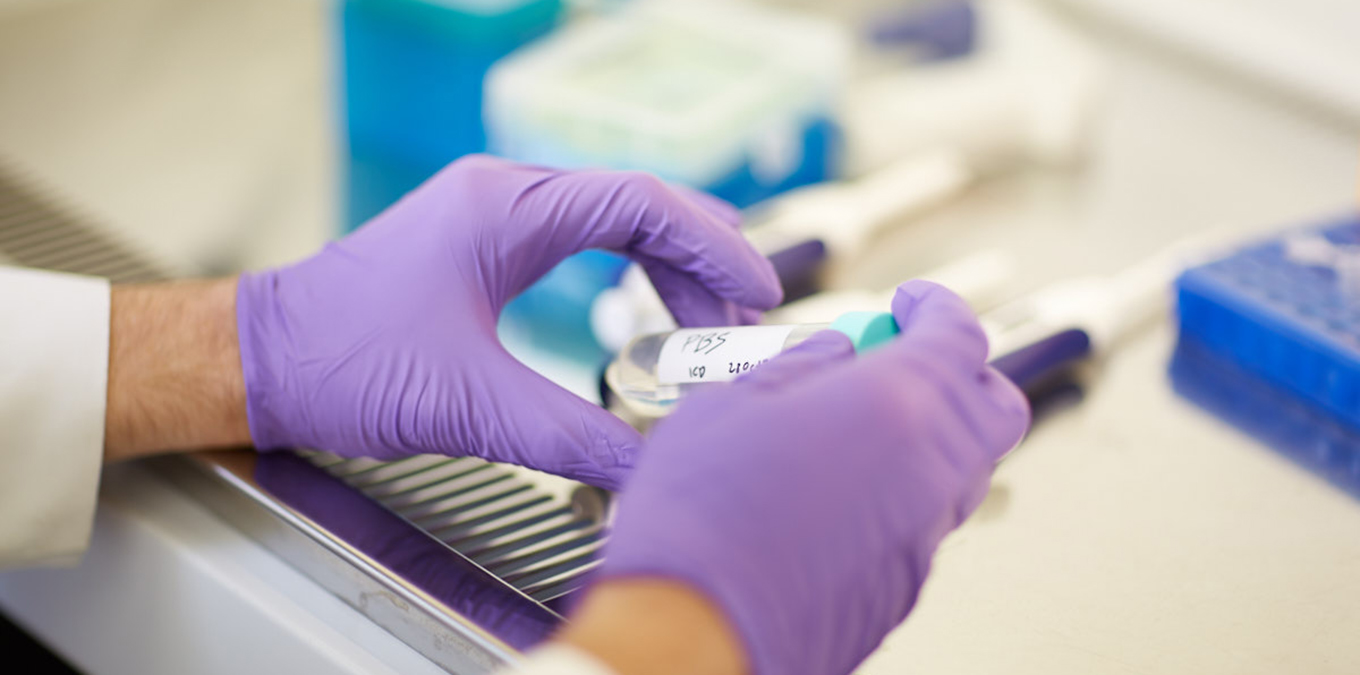Pharmacology (Non-Thesis)
Whether you want to pursue a career path in the pharmaceutical, biomedical sciences, or healthcare industries, Duquesne University’s pharmacology master’s program builds your knowledge base and refines your professional development.
Emerge at the Forefront of Pharmaceutical Innovation
Enrich your expertise by applying to Duquesne University’s Master of Science in Pharmacology degree program. In this non-thesis track, you dive into an exploration of drug mechanisms, toxicology, research ethics, and more. Through hands-on practice and faculty mentorship, you develop diverse skills for success as a research scientist, toxicologist, pharmaceutical representative, or other industry expert.
At Duquesne, you can expand your horizon by transforming your academic and professional future at a pace that suits you. Earn your M.S. in Pharmacology degree in as little as two years.
Ready to join our growing community of up-and-coming pharmaceutical leaders? Take the next step today!
Program Information
Earn your Master of Science in Pharmacology degree via the non-thesis track at the Duquesne University Graduate School of Pharmaceutical Sciences.
Program Type
Major
Degree
Master's
School
Duration
2 Years
Required Credit Hours
31
Modality
In-Person
Why Earn Your Master's In Pharmacology at Duquesne?
In the non-thesis track of the master’s in pharmacology, you are not required to complete a research thesis at the end of your program. Instead, your studies focus on practical application and expanding your horizons with industry-focused skills. You enroll in lecture-laboratory classes, seminars, and electives covering advanced topics in drug action evaluation, neuronal pharmacology, and pharmacodynamics.
You'll Be Prepared For Anything
What You'll Learn
Ready for an immersive, career-focused pharmaceutical science education? At Duquesne, you begin preparing to innovate drug development and help build healthier local and global communities. To earn your M.S. in Pharmacology, you must complete 31 credits in the following categories:
- Core course – 15 credits
- Seminar courses – 4 credits
- Electives – 12 credits
From methods for evaluating drug actions to principles of neuronal pharmacology and toxicology, your core pharmacology coursework expands your understanding of how the body processes and reacts to administered substances on molecular, biochemical, and physiological bases.
Many of these classes utilize a lecture-laboratory format, blending traditional coursework with lab experiments to ensure plenty of opportunities to put your theoretical knowledge into practice. You’ll develop essential skills and lab techniques that aid your advanced study of drug actions and toxicity across various biological systems.
You also take part in graduate seminars, allowing you, your classmates, and invited speakers to give formal research presentations and refine your scientific presentation skills. Through these seminars, you gain access to cutting-edge research and strengthen your ability to express yourself as a scholar.
Curriculum
- GPSC 530: Foundations in Pharmaceutical Sciences I (3 credits)
- GPSC 531: Foundations in Pharmaceutical Sciences II (3 credits)
- GPSC 532: Foundations in Pharmaceutical Sciences III (2 credits)
- GPSC 540: Scientific Writing I (2 credits)
- GPSC 541: Scientific Writing II (2 credits)
- GPSC 550: Pharmacology Seminar (2 Semesters) (4 Credits)
- MATH 525W: Advanced Statistics (3 credits)
- Electives (discipline approved) (12 Credits)
Have Questions About the Master's in Pharmaceutics Program?
Carl Anderson, PhD
Charlotte Brackett
Admissions Requirements
Ready to launch your graduate education? Duquesne University can help you reach your goals. When applying to the master’s in pharmacology degree program, please submit the following materials:
- Official transcripts (credential evaluations required for international students)
- Résumé
- Personal statement
- Three letters of recommendation
- OPTIONAL: GMAT/GRE scores
- GRE Institution Code: 2196, Department Code: 0613
- TOEFL/IELTS/Duo Lingo scores (required for international students only)
- TOEFL Institution Code: 2196
Fall Application Deadline: December 1st
Spring Application Deadline: October 1st
Applicants must apply by the deadline of the preferred starting semester to ensure sufficient time for evaluation and processing.
International Students
International students with degrees from outside the United States must submit a course-by-course transcript evaluation from a credential evaluation service to apply for the pharmacology program.
Please have the organization you order your transcripts through send official reports directly to Duquesne University. They will qualify as official transcripts. For more information, review our Transcript Credential Evaluation Instructions.



